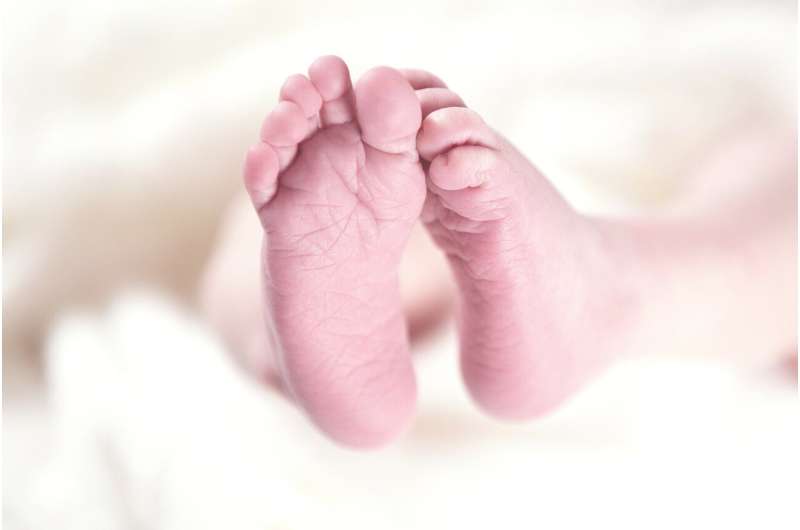New study helps improve detection of disease in newborn babies

New research will help health-care practitioners more accurately diagnose illness in newborn babies from urine samples by comparing them with samples from healthy babies.
"(Our research) provides reference data that every doctor or neonatologist around the world can freely use in order to compare sick newborns with their healthy counterparts," said University of Alberta researcher David Wishart, who led the study in partnership with Yamile Lopez-Herndandez from the Universidad Autónoma de Zacatecas.
The researchers measured the concentrations of nearly 140 chemicals in urine samples from 48 healthy, full-term newborn babies in the first hours after their birth.
The results quantified 86 chemicals that had never been measured in newborn urine and another 20 chemicals that had never even been measured in human urine.
Wishart said urine tests can be used to diagnose and monitor many conditions in infants, including metabolic disorders, genetic diseases and birth-trauma effects, but the challenge is that clinicians haven't had reference points for healthy ranges of the chemicals in babies' urine
"As a result, it's hard for doctors or clinical chemists to determine if a newborn is really sick or their chemical concentrations in urine or blood are normal," he said.
"This research is really intended to help doctors and clinical chemists make more informed diagnoses with newborns using urine analysis."
The study, "The Urinary Metabolome of Healthy Newborns," was published in Metabolites.
More information: Yamilé López-Hernández et al. The Urinary Metabolome of Healthy Newborns, Metabolites (2020). DOI: 10.3390/metabo10040165
















